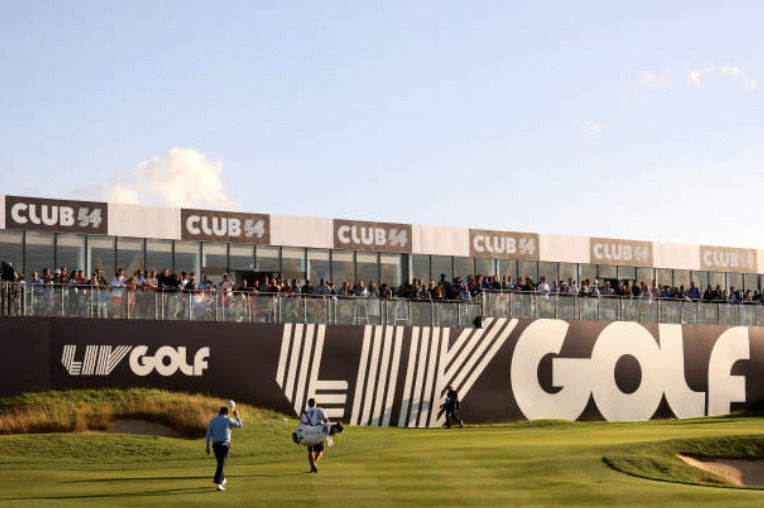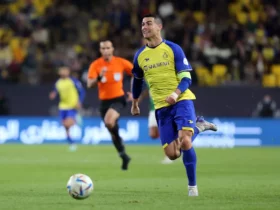In June 2022, the LIV Golf Invitational made its debut at the Centurion Club outside of London.
Playing in the inaugural series were some of the most prominent names in professional golf, including Phil Mickelson, Dustin Johnson and Sergio Garcia. In light of these golfers’ remarkably lucrative signing bonuses from LIV, all three men found a place on Forbes’ 2022 list of the world’s highest-paid golfers. Mickelson, a six-time champion on the Professional Golfers’ Association of America (PGA) tour, was guaranteed an estimated $200 million to join the LIV tour, essentially poaching him from the PGA and making him the highest-paid athlete in the world.
Despite expending remarkable investment into this league, the June event, which could only be streamed via YouTube, peaked at about 95,000 average viewers. Meanwhile, the RBC Canadian Open, a PGA Tour event, reached almost three million average viewers.
With huge names, astronomical spending and beautiful locale, why has LIV struggled to gain the broadcasting viewership that financially sustains most sports leagues?
The new PGA tour rival, LIV, is being bankrolled by the $620 billion Public Investment Fund (PIF) of Saudi Arabia. PIF is the nation’s sovereign wealth fund that provides financial support to projects that develop the Saudi Arabian economy.
Receiving funding from the Saudi Arabia government has left LIV under intense international scrutiny, and it has opened up conversation about the country’s ambitions to “sportswash” their international reputation. Despite unprecedented funding, however, LIV has failed to acquire deals with U.S. television networks, sizable sponsors or even a substantial number of ticket sales. As a profitable business, LIV seems completely unviable. As an opportunity to repair Saudi Arabia’s poor global image, the golf league could be invaluable.
Authoritarian and oppressive countries use sportswashing to improve their nation’s image through sporting events. Whether it be team ownership, hosting major sporting events or financing leagues, authoritarian governments hope that association with a popular sport will essentially launder their international reputation.
For Saudi Arabia, this means diverting international eyes from a series of corrupt behaviors, including an unethical justice system that allows for gratuitous execution, detainment and torture. Moreover, the nation is in the tenth-lowest ranked countries on the World Economic Forum’s 2021 Global Gender Gap Report, and many women’s rights activists have faced imprisonment in recent years.
Furthermore, despite Saudi Arabia’s persistent denial about any involvement with the attack on 9/11, the FBI declassified a 16-page memo in 2021 that detailed links between the terrorists and Saudi nationals living in the United States, including a Saudi diplomat. Alongside countless other human rights violations, the dismal international reputation was further worsened in 2018 by the murder of Washington Post reporter Jamal Khashoggi, a public critic of the Saudi government.
LIV is just one vehicle of sportswashing that the Saudi government is currently utilizing. In 2021, the PIF obtained an 80% stake in the English Premier League team Newcastle United. As the most popular sport in the world, a soccer club would presumably attract positive attention.
Sportswashing is not a tactic exclusive to the Saudi government. In fact, some of the most notorious regimes throughout world history have adapted it into their political strategies. In 1936, Chancellor of Nazi Germany, Adolf Hitler, hosted the 1936 Olympic Games to gain legitimacy in the global community despite their anti-Semitic rhetoric.
More recently, Amnesty International warned that the 2020 Winter Olympics in Beijing, China was a sportswashing opportunity to divert attention from the human rights violations against the Uyghur Muslims in China. In 2014, Vladamir Putin hosted the Sochi Winter Olympics, earning unprecedented popularity despite Russia’s invasion and annexation of Crimea that same year. In 2018, Russia also hosted the FIFA World Cup.
Despite serious humanitarian issues in Qatar, FIFA granted Qatar the 2022 games with no due diligence and no protective conditions for workers, journalists, women, LGBTQ+ attendees, athletes or fans. The lack of worker protection, paired with intense heat, has left at least 6,750 migrant workers dead in Qatar since the games were granted to them in 2010, which is likely an undercount of the actual worker deaths from infrastructure construction for the World Cup.
Despite the prevalence of sportswashing, many athletes have refused to partake in its propagandistic tendencies. LIV CEO Greg Norman said that Tiger Woods, arguably the most important name in golf, was offered between $700 and $800 million to leave the PGA Tour and join LIV. Woods turned down the offer stating that he disagrees with those who defected from the PGA.
In 2020, current PGA Tour Commissioner Jay Monohan warned the PGA tour that any golfer who sided with the Saudi-funded league would face a lifetime suspension and ban from the PGA, although whether Monohan has the legal authority for such a ban is still being debated.
At the PGA Players Championship, Monohan said, “All this talk about the league and about money has been distracting to our players, our partners and most importantly our fans. We’re focused on legacy, not leverage.”
LIV is just the newest signal that even international sports are not politically neutral. As more light is shed on realities of sportwashing, professional athletes will be forced to confront these issues head-on and decide if they will condone authoritarian regimes and inhumane practices for the sake of their athletic careers.







